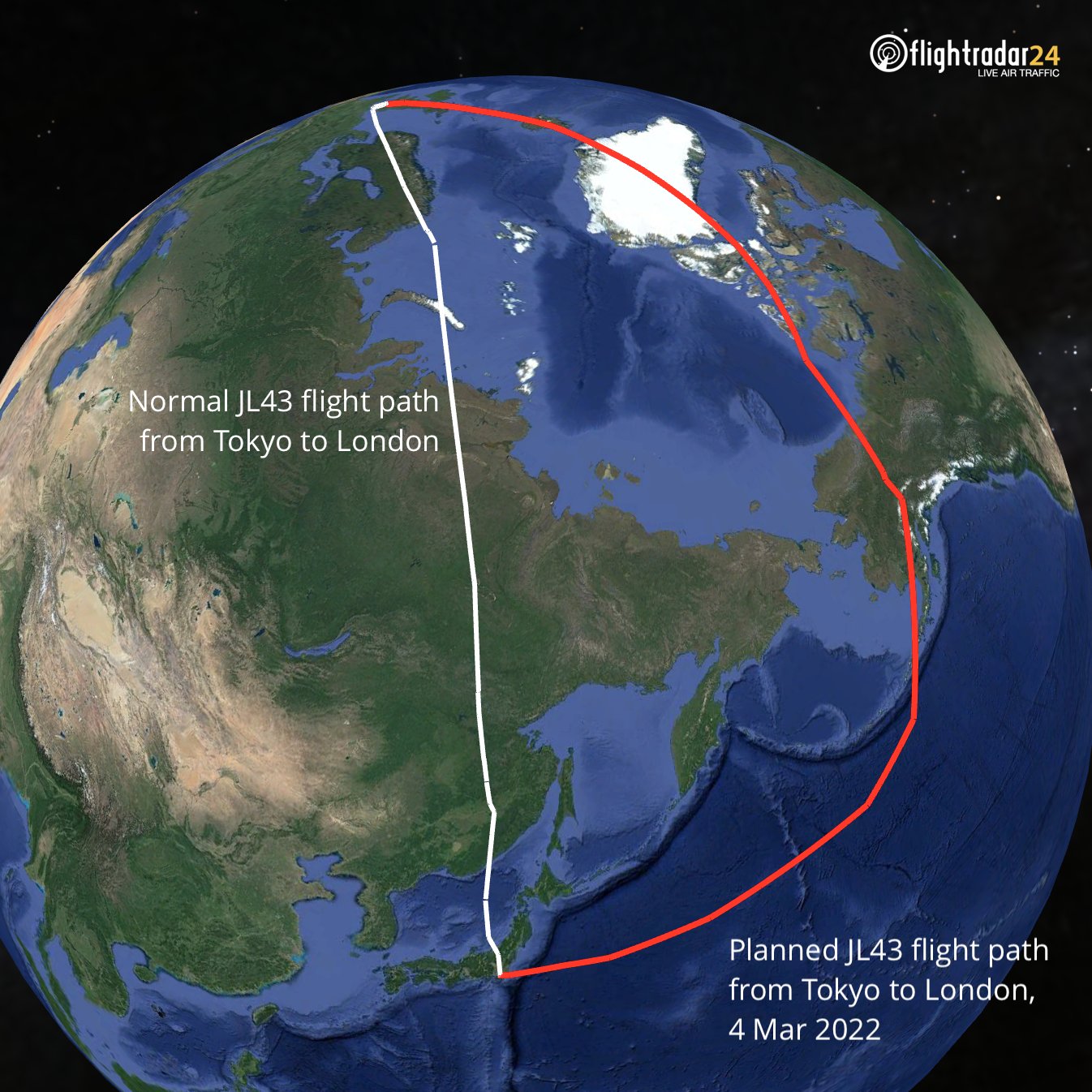JAL and ANA cancelled all European flights on Thursday
Japan Airlines (JAL) and All Nippon Airlines (ANA) have decided to either cancel or reroute all flights to and from Europe to avoid flying over Russian airspace. Both carriers cancelled all Europe-bound flights on Thursday 3rd March.
Both JAL and ANA have also cancelled or rerouted European flights on Friday amid Russia's invasion of Ukraine. ANA has preemptively cancelled some flights scheduled on Saturday, according to Reuters.
Japan Airlines has planned to operate one of its London flights on Friday using an eastbound route over Alaska, Greenland, and Iceland; avoiding Russian airspace normally utilised on its westbound route.
"We are continuously monitoring the situation, but given the present situation in Ukraine and the different risks, we have decided to cancel flights."
JAL spokesperson
ANA and JAL usually use Russian airspace to operate around 60 flights per week between Tokyo and Europe, including Frankfurt, London, Paris and Helsinki.
Today, Japan Airlines Flight JL43 from Tokyo to London took a very different route, heading east over Alaska, Greenland and Iceland rather than west over Russia.
Longer diversions to avoid Russian airspace
After Russia closed its airspace to flights from 36 countries, including the entirety of the European Union, airlines have been forced to cancel or reroute flights between Europe and North Asia. Additionally, commercial flights have avoided Ukrainian, Belarusian and Moldovian airspace; prolonging flight times to Southern Asia.
Earlier this week, Finnair suspended flights to Seoul, Osaka, Tokyo, Shanghai, and Guangzhou, which largely passed through Russian airspace. However, the Finnish flag carrier later announced the resumption of four weekly flights between Helsinki and Tokyo Narita, rerouting to avoid Russian airspace. The airline's Airbus A350-900s will take 13 hours to fly to Tokyo, up from under ten hours previously.
"Japan is one of our most important markets, and we want to continue offering safe and reliable connections between Helsinki and Tokyo also in this situation. Japan is also an important cargo market, and air connections are needed to keep cargo moving."
Ole Orvér, Chief Commercial Officer, Finnair
Finnair’s flight between Stockholm and Phuket has also been rerouted to fly southeast toward Saudi Arabia rather than the usual route over Russia.
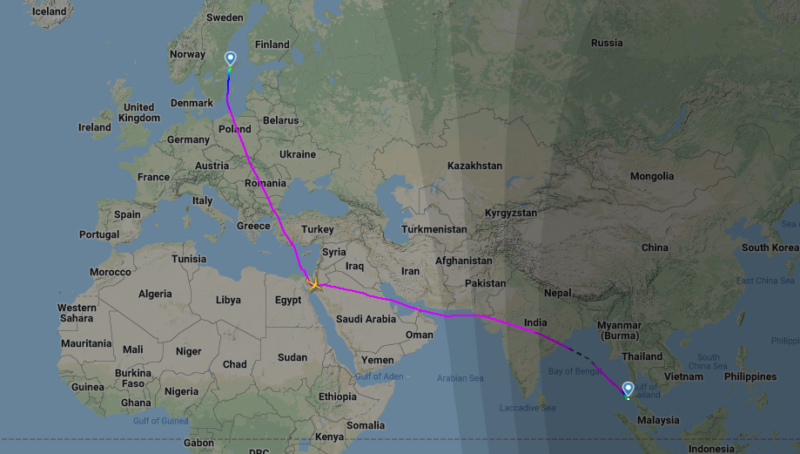
Korean Air is still flying over Russian airspace. However, Taiwanese carriers have altered their routes to predominantly use Chinese and Central Asian airspace.
Rerouted Flights
Rerouting flights has drastically affected airline operations, with longer flight times and decreased cargo capacity becoming the norm.
Lufthansa's flight LH728 from Frankfurt to Beijing was rerouted south of Russian airspace, adding 700 nautical miles and prolonging the flight time by almost two hours. The airline's cargo division has cancelled flights to Hong Kong and Beijing until the end of March, citing high operating costs and a decrease in cargo volume.
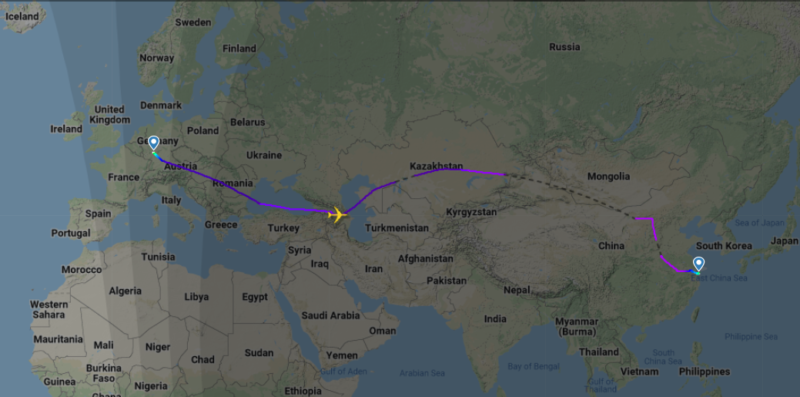
British Airways flights to Asia have also seen prolonged flight times. Flight BA142 from London Heathrow to New Delhi has been rerouted to fly below Ukrainian airspace and over the Black Sea, avoiding Russian and Kazakh skies.
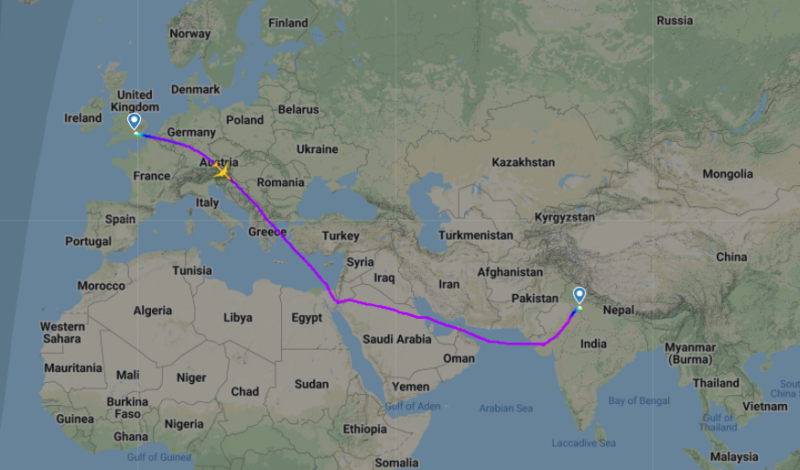
United has cancelled all flights between the United States and India, with the last flight departing Delhi on 2nd March. The extended routing took almost 16 hours. United has cancelled flights from San Francisco to New Delhi and Newark to Mumbai. The airline has been rerouting flights between Newark and Delhi.
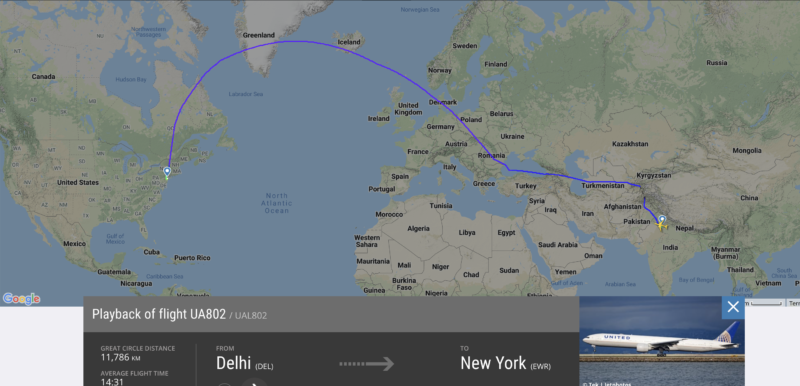
However, Air India is still flying over Russian airspace for its flights between the US and India. Air India continued to use Russian airspace even after the crisis began, with no change in flight durations.
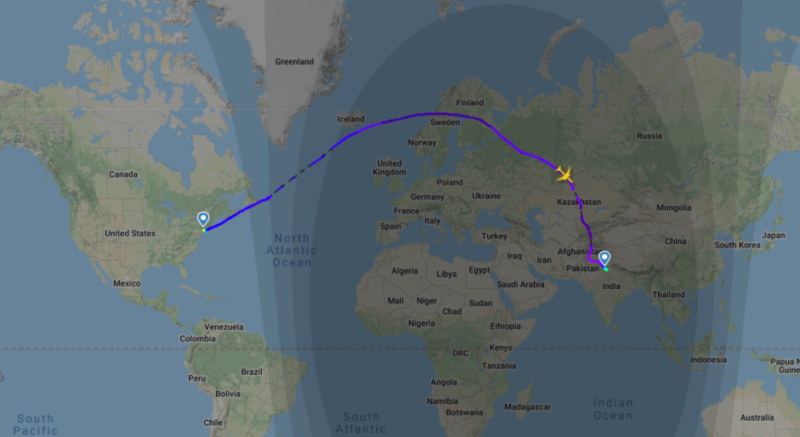
Cover Photo: Twitter/FlightRadar24


